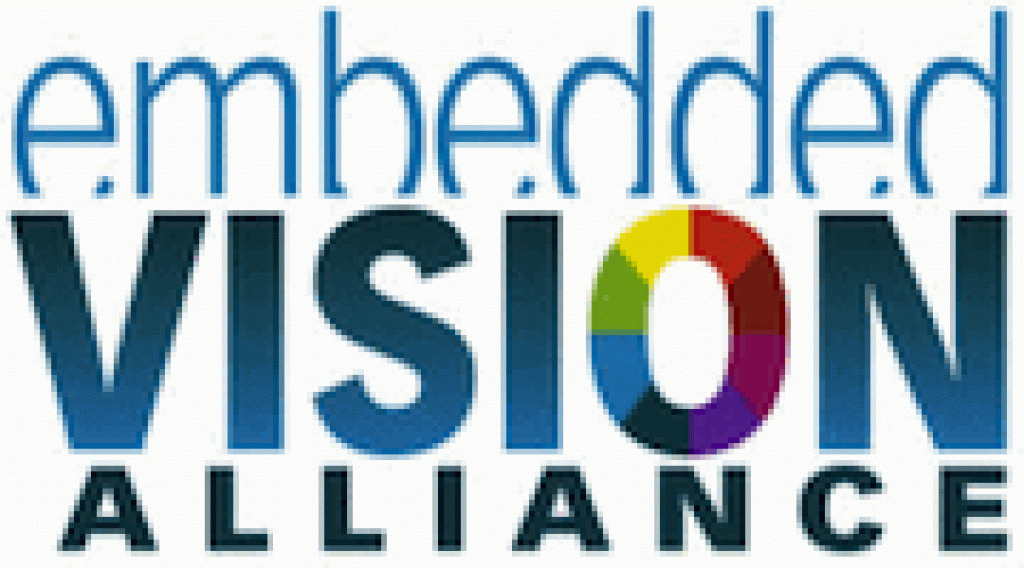|
Dear Colleague,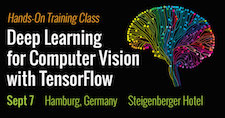
TensorFlow has become a popular framework for creating machine learning-based computer vision applications, especially for the development of deep neural networks. If you’re planning to develop computer vision applications using deep learning and want to understand how to use TensorFlow to do it, then don’t miss an upcoming full-day, hands-on training class organized by the Embedded Vision Alliance: Deep Learning for Computer Vision with TensorFlow. It takes place in Hamburg, Germany on September 7. Learn more and register at https://tensorflow.embedded-vision.com.
Brian Dipert
Editor-In-Chief, Embedded Vision Alliance
|
|
What’s Hot? The M&A and Funding Landscape for Computer Vision Companies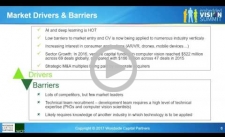
The six primary markets driving computer vision, according to Rudy Burger, Managing Partner at Woodside Capital Partners, are automotive, sports and entertainment, consumer and mobile, robotics and machine vision, medical, and security and surveillance. This presentation examines the flow of venture money and the volume of M&A activity in each of these sectors and highlights notable transactions and trends. So far, computer vision has not created any unicorns (private companies worth over a billion dollars). Why not? Which existing computer vision companies may become unicorns over the next couple of years? Burger particularly focuses on several hot sectors driving the vision market: automotive and consumer. Where are the growth opportunities for innovative private companies in these sectors? He highlights a few leading private computer vision companies within these two markets, and the disruptive vision technologies they are developing. He also considers which public companies are likely to be the winners (and losers) within these sectors.
Vision Entrepreneurs' Panel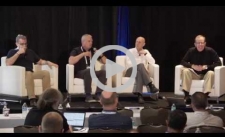
What can we learn from leaders of successful vision-based start-ups? The expanding applications of embedded vision are opening up exciting business opportunities, and countless entrepreneurs are developing diverse vision-based end-products and enabling technologies. But building a vision-based company brings unique risks and challenges. This panel is moderated by Chris Rowen, CEO of Cognite Ventures, and also includes Mark Bowles, founder of ecoATM; Michael Tusch; and Remi El-Ouazzane, CEO of Movidius, an Intel company. It brings together an amazing group of visionary leaders who have conceived and scaled vision-based businesses to multi-hundred-million-dollar valuations. Sharing their failures as well as their successes, along with key lessons learned, these successful entrepreneurs "pay it forward," helping to enable the next generation of vision-based start-up leaders.
|
|
The Rapid Evolution and Future of Machine Perception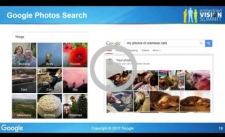
With the advent of deep learning, our ability to build systems that derive insights from perceptual data has increased dramatically. Perceptual data dwarfs almost all other data sources in both its richness and its sheer size. This poses some unique challenges that have forced learning systems to evolve. This technical progress has enabled learning systems to be adopted in mainstream consumer products across the industry, such as Google Photos and YouTube, where learning systems have clearly proven their usefulness. In this talk, Jay Yagnik, Head of Machine Perception Research at Google, reviews the key ingredients of recent progress in machine perception. He also explores the substantial gaps that still need to be filled, and highlights some emerging applications that illustrate the potential future impact of this technology.
Building Mobile Apps with TensorFlow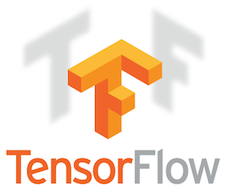
Pete Warden, Google Research Engineer and technical lead on the company's mobile/embedded TensorFlow team, was formerly the CTO of Jetpac, acquired by Google in 2014 for its deep learning technology optimized to run on mobile and embedded devices. He's also previously worked at Apple on GPU optimizations for image processing, and has written several books on data processing. Warden has another book, "Building Mobile Apps with TensorFlow," coming out soon; the Embedded Vision Alliance recently spoke with him about it and, more generally, about Google's efforts and aspirations for embedded vision and TensorFlow.
|
|
TensorFlow Training Class: September 7, 2017, Hamburg, Germany
AutoSens Conference Brussels: September 19-21, 2017, Autoworld, Brussels, Belgium
Synopsys ARC Processor Summit: September 26, 2017, Santa Clara, California
More Events
|

